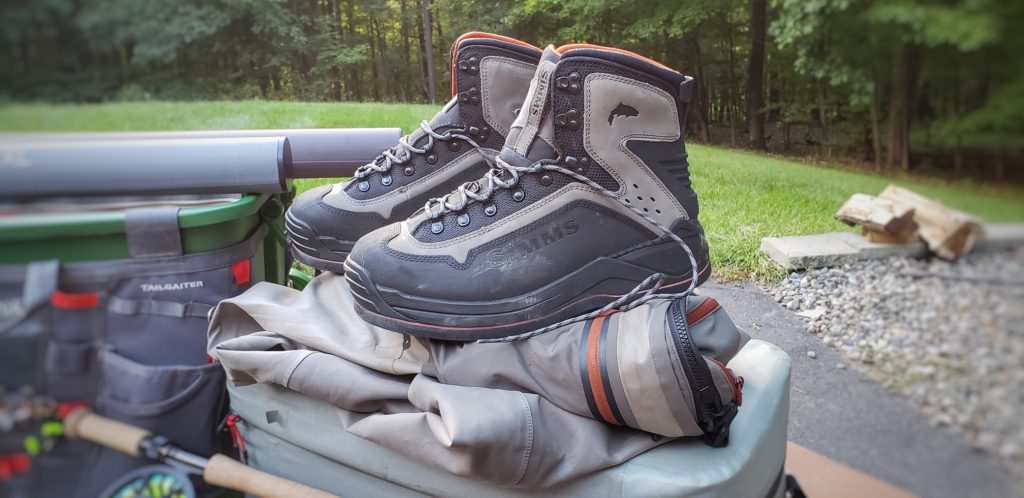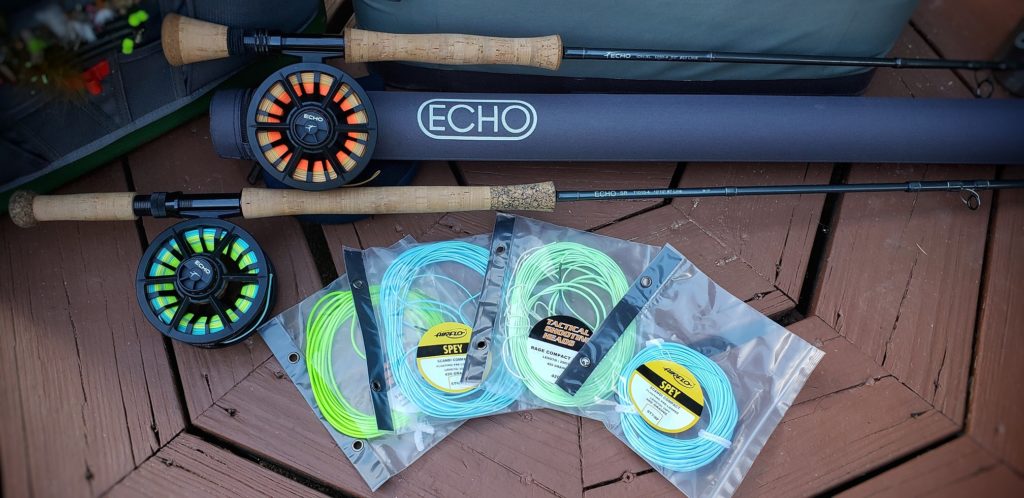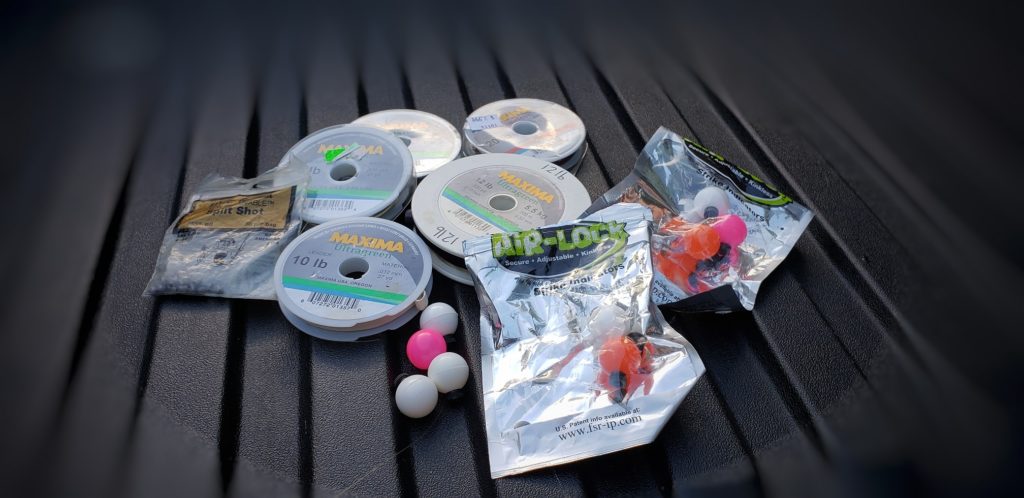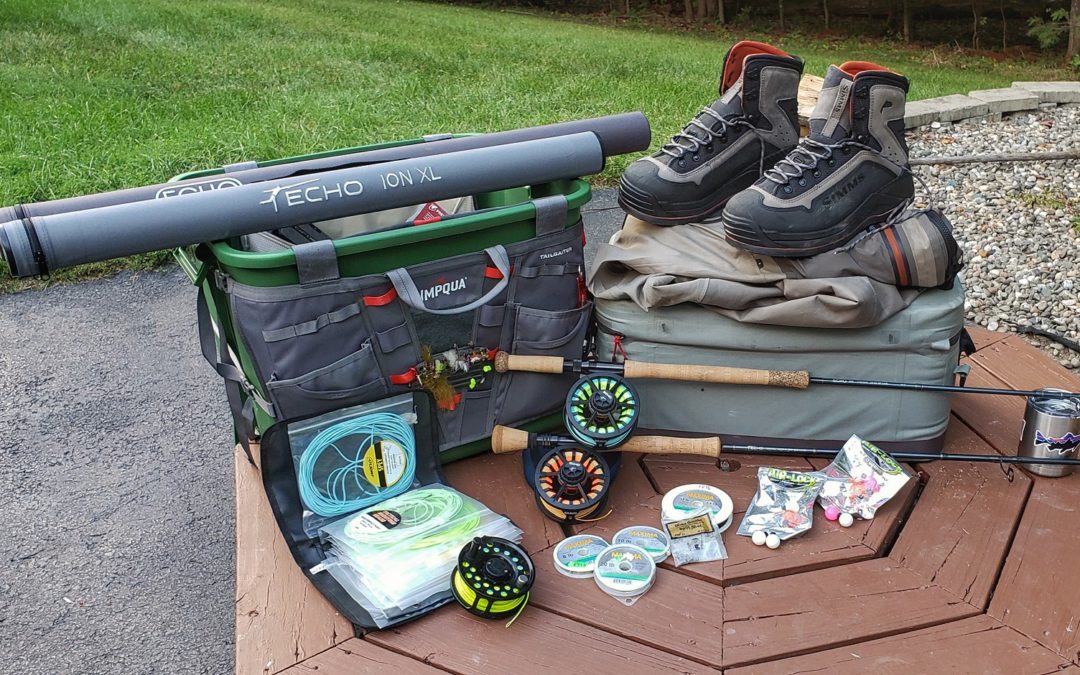Getting Your Gear Ready for the Fall Season
Summer is quickly winding down and before you know it, the tributaries of the Great Lakes will be filled with steelhead and brown trout. Spending some time now will save you and your fishing buddies from a headache when the run is on and you need to go back home or hit the fly shop.
Waders & Boots

Let’s start here with your waders and boots. These are probably two of the most overlooked things to check. Did you forget about that leak in your left foot from last spring? If you have GORE-TEX waders, turn them inside out and spray them with rubbing alcohol, if you have any leaks or holes, they will turn to black spots. If you see any black spots, these are the spots you’ll need to apply some Aquaseal to. Boots – check your laces or boa for wear and replace your studs as needed. Some super glue or Aquaseal will help hold those studs that refuse to stay in when you’re wading.
Fly Rods, Reels and Lines

Check your fly rods for any broken guides. You’d be surprised how many times I have seen a client pull a rod out of a tube, forgetting that they broke the rod last time they were out. Apply some wax to your rod ferrules, if desired. Check the drag on your reels and make sure they are okay, leaving a drag cranked down over the off season has been known to create some problems. Fly lines could be a whole article alone, so I will just scratch the surface some. Check your lines for cracks by stripping the line through your fingers for roughness and spots where you may have stepped on the line with your studded boots in the boat or bank. Check the welded loops for wear and cracks from leaders, these are often overlooked. Check all your sink tips for the same thing and I like to change the tippet while doing this, adding a fresh piece of Maxima.
Terminal Tackle

I always go through my boat bags and inventory tippet spools, leaders, indicators, hooks and split shot. Make sure you have nippers, hemostats and lanyards or any other tools such as headlamps, that you’ll need for that next trip. Check fly boxes and look over flies that may have been put away wet, flies that may have been chewed on too many times and move them to a retirement box.
Once all that is done, it’s time for a well-earned beer! Don’t forget we’re all out on the water to have fun enjoyable day, so respect each other and each other’s water.
~ Paul Conklin is an Echo Pro Team member and owner of Paul’s Guide Service based out of Pulaski, NY. He grew up fishing the waters around upstate New York and found his way to the spey rod back in the early 1990’s. Paul takes pride in helping his clients improve their spey casting, which often equates to a more productive day swinging flies. When he’s not guiding or fishing, he’s kicking back with his family and his three mastiffs, cold beer in hand.

Recent Comments